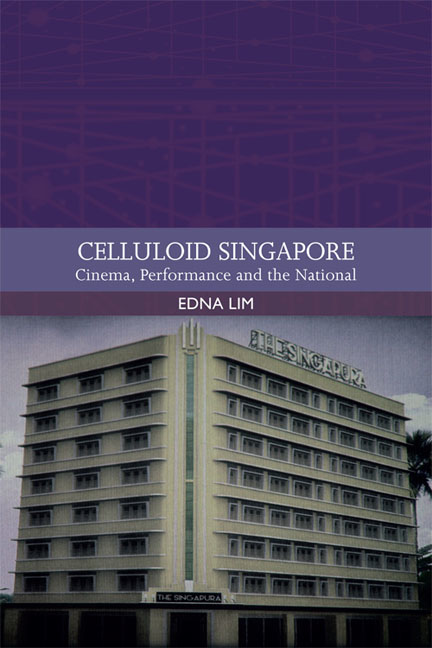Book contents
- Frontmatter
- Contents
- List of Figures
- Acknowledgements
- Traditions in World Cinema
- 1 Introduction
- 2 Merdeka!: Merger, Separation and a Transnational Golden Age
- 3 Influence, Hybridity and How the Past is a Foreign Country
- 4 Nation-building, a Nun and a Bionic Boy
- 5 Not so Foreign: the Case of Saint Jack
- 6 One People, One Nation, One Singapore
- 7 Revival Cinema: ‘Other’ Singaporeans in (An)other Singapore
- 8 Singapore Cinema in Singapore
- Works Cited
- Index
7 - Revival Cinema: ‘Other’ Singaporeans in (An)other Singapore
Published online by Cambridge University Press: 11 November 2020
- Frontmatter
- Contents
- List of Figures
- Acknowledgements
- Traditions in World Cinema
- 1 Introduction
- 2 Merdeka!: Merger, Separation and a Transnational Golden Age
- 3 Influence, Hybridity and How the Past is a Foreign Country
- 4 Nation-building, a Nun and a Bionic Boy
- 5 Not so Foreign: the Case of Saint Jack
- 6 One People, One Nation, One Singapore
- 7 Revival Cinema: ‘Other’ Singaporeans in (An)other Singapore
- 8 Singapore Cinema in Singapore
- Works Cited
- Index
Summary
The films of the revival are very different from those of prior periods and this is most obvious in the ways they look and sound. The kampongs or villages of golden age films have been replaced by a new landscape of skyscrapers, Housing Development Board (HDB) apartment blocks and satellite towns that reflect urban, contemporary Singapore. Instead of Malay or Americanaccented English, the films of this period feature the range of languages and variations characteristic of multilingual Singapore, including Standard English, Singlish (a non-standard, local, English dialect also known as Singapore English), Mandarin and other Chinese dialects such as Hokkien or Cantonese, as well as some sparing use of Malay and Tamil. Emerging after the state's performance of its successful Singapore has been firmly entrenched, it is this idea of Singapore that its revival cinema addresses. As I have previously argued, if the state's version of the nation projects a successful Singapore inhabited by affluent, happy Singaporeans, the films of the revival perform (an)other Singapore populated with ‘other’ Singaporeans. These are individuals and identities left out of the state's performance and include obvious character types like prostitutes, gangsters, convicts and juvenile delinquents who hover on the fringes of mainstream society. Such characters appear in early films like Bugis Street – The Movie (Yon Fan, 1995) and Mee Pok Man (Eric Khoo, 1995), and are reflected identities of the marginalised, underbelly spaces they inhabit such as red-light districts, cheap hotels, sleazy bars, dingy coffee shops, dark back alleys and cramped apartments. A brief survey of forty-four Singapore films made between 1995 and 2008 shows that only seven do not have characters who are social rejects, have absent parents, are loan sharks, prostitutes, gangsters, teenage delinquents or disabled. While this may be so, more compelling are the ways that supposedly average Singaporean characters in revival films cannot or fail to participate in the state's version of a successful Singapore. This begins with 12 Storeys and Money No Enough, which are landmark films not only because they are the first films to respectively achieve critical acclaim and commercial success but also because of the ways they influence those that follow, whether consciously or not. As such, this chapter will expand on discussions of these two films in my earlier work to establish a framework for analysis before proceeding to other films that constitute variations of the same counter-performative strategies.
- Type
- Chapter
- Information
- Celluloid SingaporeCinema, Performance and the National, pp. 139 - 164Publisher: Edinburgh University PressPrint publication year: 2018



